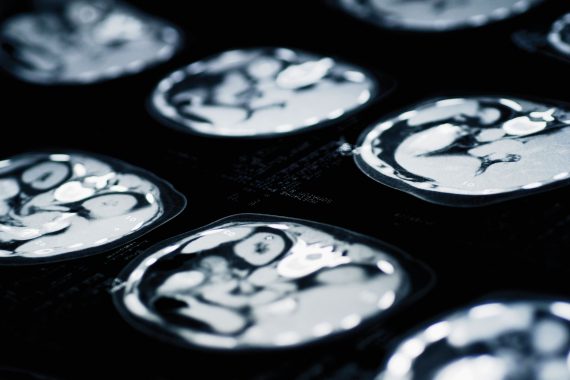Are we set for a revolution in mental health?


Mental health has gone from the ‘Cinderella’ service to the belle of the ball. Ministers are fond of repeating how they are ensuring ‘parity of esteem’ with physical health and reminding everyone of the millions of pounds they plan to spend on the service.
But, as ever, the truth is rather different. There have been year-on-year cuts in mental health spending.
Pulse revealed in 2014 that CCGs were being advised to cut mental health services by 1.8%, compared with 1.5% for other services. This was after the Health and Social Care Act made it a statutory requirement that mental health be given equal priority to physical health in 2012.
Hundreds of thousands of lives put on hold or ruined
Taskforce report
GPs have been warning that the cuts to community mental health teams were decimating services and having a drastic effect on patients.
A Pulse survey two years ago showed a fifth of GPs have seen patients come to harm as they were unable to access appropriate support, with some patients being sectioned or admitted, or dying by suicide, as a result.
The financial constraints have also meant GPs have often had little support when diagnosing and treating patients with mental health problems, particularly children and young people, with more referrals rejected by CAMHS as they ‘don’t fit the criteria’.
A recent Pulse survey found six out of 10 say that they are forced to diagnose serious conditions such as autistic spectrum disorder (ASD) or ADHD in children and adolescents and prescribe specialist drugs, due to a ‘dearth of provision all over the country’.
‘Decades of underfunding’
In the face of growing unease about the cuts to mental health services, the Department of Health and NHS England commissioned a taskforce in 2014 to look into what can be done to improve services.
Chaired by Paul Farmer, chief executive of the mental health charity Mind, the taskforce reported back last month – and it did not mince its words.
It says: ‘Mental health services have been underfunded for decades, and too many people have received no help at all, leading to hundreds of thousands of lives put on hold or ruined, and thousands of tragic and unnecessary deaths.’
It found that the rate of suicides was rising after many years of improvement, with suicide now the leading cause of death in men aged 15 to 49. Shockingly, many were found to have contacted primary care or other health services before their deaths.
The report recommends a ‘fresh mindset’ in the health service, reinforcing the parity of esteem principle, and says there should be a ‘major drive’ to reduce suicide by 10% by 2020/21.
It recommends a ‘dramatic widening of access to psychological therapies’ for people with common mental health problems – from the 15% of adults in need who currently get care to 25% by 2020/21.
GPs are at the centre of the plans. The taskforce report recommends all GPs receive ‘core mental health training’ by 2020/21 and the introduction of at least 700 ’GPs with an extended Scope of Practice in Mental Health’ or ‘GPwERs’ in the next five years.
It also says practices should get the ‘time they need’ to carry out physical health checks in 280,000 more patients with severe mental health illness by 2020/21.
This will involve developing new models of primary care, it says, in which ‘GPs and practice nurses take responsibility for delivering the full suite of physical care screenings, outreach, carer training and onward interventions or referrals, in line with NICE guidelines’.
To fund this, NHS England says it intends to invest more than £1bn extra a year in mental health care by 2020/21.
But Pulse has learned that the figure is generated from projected spending by CCGs and relies on their cutting current spending in other areas in order to shift funding to mental health.
Superficial
GP leaders also say the report only deals superficially with what was required in primary care. RCGP chair Dr Maureen Baker says: ‘GPs play a vital role in diagnosing patients with mental health problems and providing the care they need to help them live safely in the community – but this is not explicitly reflected in this report.’
Instead, she refers to her earlier calls for every GP practice to have direct access to a mental health professional ‘who can deliver therapies such as cognitive behavioural therapy and other talking therapies that have been found to be incredibly beneficial for patients’. Dr Baker adds: ‘This way our patients can access these important and effective services when they need them, not 28 days or more later, as is currently often the case.’
And this is what matters to GPs and their patients. Now ministers have had the positive headlines, will they ensure that any of this report is implemented to improve mental health care?
Where will the £1bn funding come from?
NHS England has promised the implementation of the taskforce report will be supported by ‘an extra’ £1bn of money for mental health.
But Pulse has learned this is not new money. CCGs will be expected to raid existing budgets to find the £1bn, which is designed to bring total mental health spend up from £11.7bn to £12.7bn a year by 2020/21.
The Department of Health has said the money outlined in the taskforce report is different from the £940m pledged by Prime Minister David Cameron in January to go towards specialist care to mothers before and after giving birth, mental health services in emergency departments and 24/7 treatment in communities.
Commissioning leaders have raised doubts about what CCGs could cut to fund the investment. Dr James Kingsland, president of the National Association of Primary Care, says: ‘It’s difficult to know where this money is coming from. There is no mechanism for NHS England to ensure how money is spent other than directives.’
NHS England was unable to explain where the £1bn will come from. But a spokesperson said: ‘Only the most bizarre mangling of the facts would claim this isn’t “new” money when it patently is.’
Pulse October survey
Take our July 2025 survey to potentially win £1.000 worth of tokens

Visit Pulse Reference for details on 140 symptoms, including easily searchable symptoms and categories, offering you a free platform to check symptoms and receive potential diagnoses during consultations.









